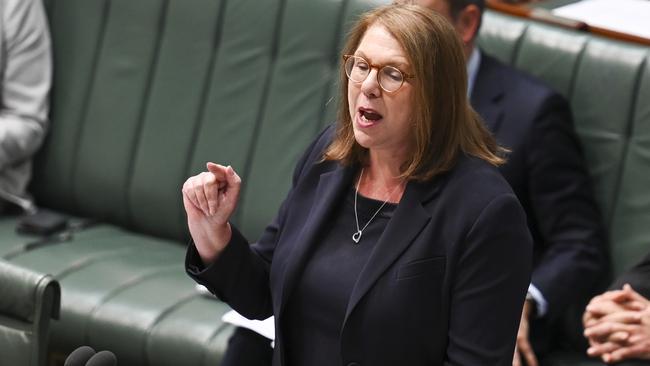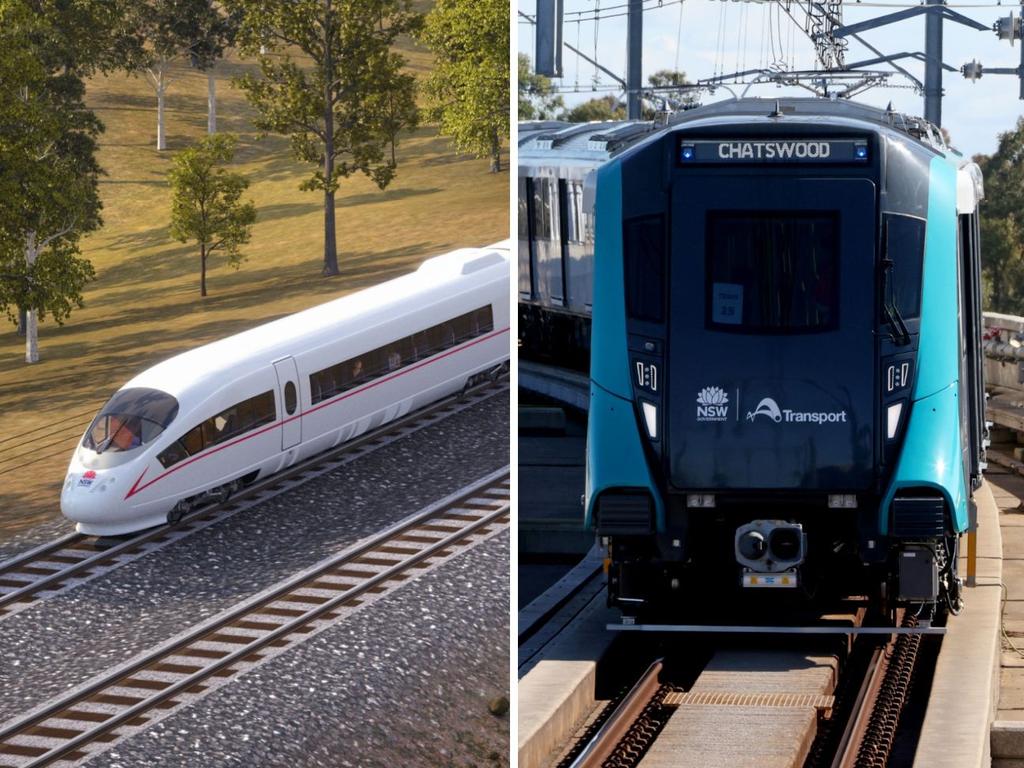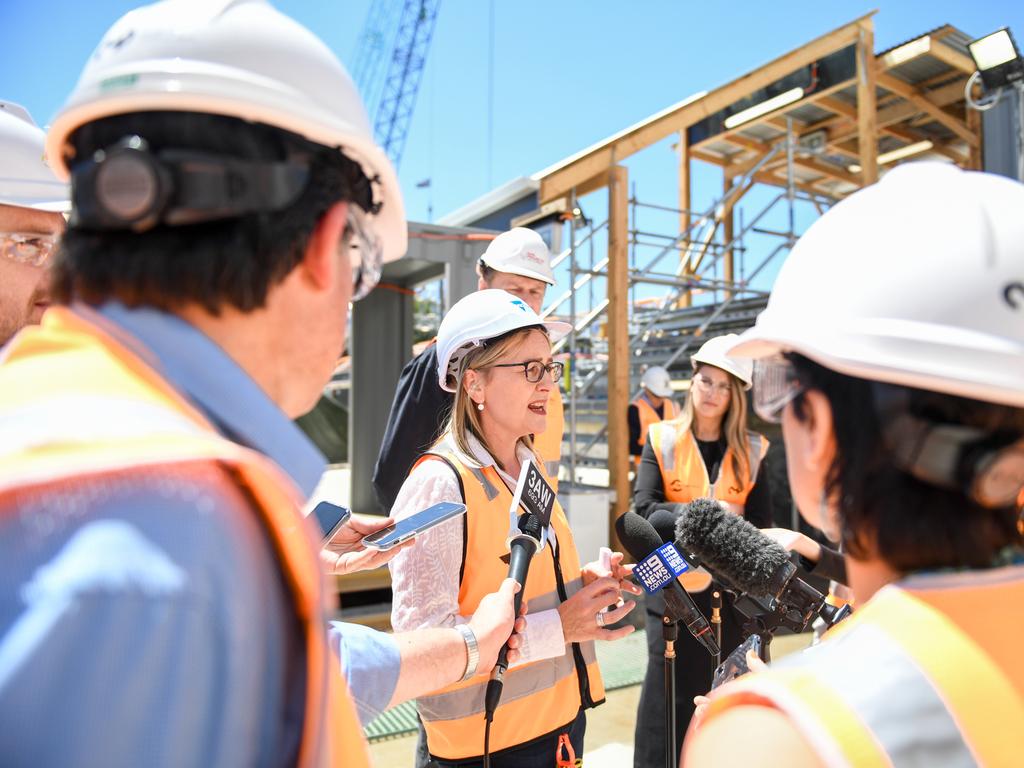‘Ad hoc’ approach to pipeline slammed by Labor’s infrastructure review
Nearly one in three planned public infrastructure projects in the$120bn capital works pipeline should be immediately scrapped, with a review slamming ‘ad hoc’ response to spiralling costs.

Nearly one in three planned public infrastructure projects in the commonwealth’s $120bn capital works pipeline should be immediately scrapped, with a government review slamming officials’ “ad hoc” response to spiralling costs and runaway delays.
A further 92 of the 274 projects which are yet to be started are under a cloud, the report states, while just 100 projects have been recommended to proceed with taxpayer support.
The government on Wednesday named some of the projects that would retain funding or receive more money but would not provide any detail of developments that would be axed.
A spokeswoman for Infrastructure Minister Catherine King said the government would outline the projects that have funding cuts on Thursday, with the review exempting election commitments or developments already under construction.
Projects under a cloud include Queensland’s $5bn Sunshine Coast rail network and upgrades to the Bruce Highway that were not election commitments.
Other projects in doubt include a $2bn upgrade to the Great Western Highway in NSW and $87m for the next stage of Canberra’s light rail.
But funding will be maintained for the Melbourne Airport Rail Link, part of Victoria’s Suburban Rail Loop project that has been panned as bad value for money by experts.
Ms King said the review had “found that the Infrastructure Investment Program we inherited could not be delivered”.
A day after Queensland Premier Annastacia Palaszczuk said she would “stand up” to the Prime Minister and push for a “no-worse-off” guarantee for her state, Ms King claimed to have the backing of the states.
“With the co-operation of the states and territories we now have a forward plan of projects that are properly planned and targeted to unlock significant economic, social and environmental objectives,” Ms King said.
Despite the imminent axing of dozens of as-yet unnamed projects, the government said there would be no cuts to the size of its 10-year mammoth pipeline, suggesting that $33bn in already identified cost overruns would be offset by cancellations and reprofiling of works.
The review also warns of potential $14.2bn in cost blow outs.
“There is an estimated $32.8bn in known cost pressures on all IIP projects, with a high risk of future, not-yet-quantified cost pressures,” the report states.
“Of these, there is an estimated $14.2bn in known cost pressures on projects not yet under construction, noting that many of these projects have not yet completed detailed cost estimates.”
The International Monetary Fund in a report earlier this month warned that the states’ huge infrastructure spending programs were driving costs higher and making it harder for the Reserve Bank to tame “high, persistent inflation”.
The IMF said deferring or culling projects would help ease cost pressures and help governments get better value for money.
Under the government’s plans, the traditional 80-20 funding split between the commonwealth and states will no longer be the default for nationally significant projects worth at least $250m.
Ms King this week announced the federal government would push the states for a 50-50 funding for major projects, saying the commonwealth was “not a bank”.
The independent review blasts government officials for their failure to take into account spiralling costs and runaway delays. A number of projects were allocated funding too early in the planning process, the review states, noting there was no requirement for jurisdictions to have a “costed and sequenced” plan for the commonwealth to use as a starting point for funding decisions.

“Cost pressures, cost escalations, delivery delays and changes to project scopes are addressed by the Australian government in a manner that is ad hoc, often not responsive to evidence of looming cost increases or aligned with long-term plans and strategies, and lack transparency and consistency,” the review states.
It recommends the federal government funds multi-year rolling projects and “significantly increases” funding available to local councils through the Roads to Recovery program, with the majority of the increase directed to non-urban areas.
As part of the federal government’s preliminary response to the review, Labor will commit extra funding to a number of projects including $1.75bn for the Logan-Gold Coast Faster Rail, $1bn for Metronet in WA, $2.7bn for the North-South Corridor in SA, $100m for Western Highway corridor in Victoria and $200m for sealing the Tanami in the Northern Territory.
It has also maintained commitments to build the $13bn Melbourne Airport Rail Link and the$940m Milton Ulladulla Bypass, the $700m Singleton Bypass and the $266m Muswellbrook Bypass, all in NSW.
Major projects committed to by the ALP during its election campaign – including Victoria’s Suburban Rail Loop – were not on the chopping block despite warnings from business groups and economists they should be axed to help control inflation.
The review also revealed the nation’s infrastructure pipeline had tripled in size since 2015, with the majority of new projects added before the pandemic.
It criticised small scale and local projects, arguing the make-up of the commonwealth’s infrastructure pipeline should be nation-building to help stimulate productivity.







To join the conversation, please log in. Don't have an account? Register
Join the conversation, you are commenting as Logout